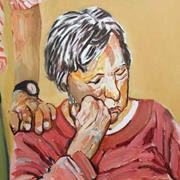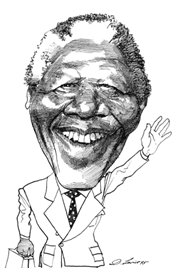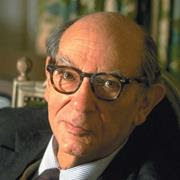| SUBSCRIBE AND SAVE | THIS ISSUE SPONSORED BY UNIVERSITY OF CALIFORNIA PRESS |
This week on nybooks.com: Does the Ukrainian nation exist? Timothy Snyder and Vladimir Putin disagree. Also Luc Sante on a film about the Sixties that’s really about now, Yasmine El Rashidi on what happened to the Egyptian revolution, Charles Simic on the delights of YouTube, and Les Murray on the typewriter. John Banville reads Isaiah Berlin’s letters,Christopher Benfey says goodbye to his mother, J.M. Coetzee salutes Nelson Mandela, and Judge Jed Rakoff asks why no high-level executives have been prosecuted for fraud in connection with the financial crisis.
| ||||||||
 Ukraine: Putin’s DenialTimothy Snyder
Asked about the turmoil in Ukraine, the Russian ambassador to France declared: “Russians and Ukrainians are one nation. It’s like the Bretons and the Normans in France. You can’t separate them.” It is hard to know how to evaluate a claim so oddly distant from normal diplomatic protocol.
|  | |||||||
 A Striver’s Ramble in Greenwich VillageLuc Sante
It could be said that historical fiction, like science fiction, is really always about the present. The Coen brothers’ Llewyn Davis is a creature of the here and now, not of 1961. He has none of the communitarian goodwill, the erudite passion, or the optimistic idealism that marked the period.
| ||||||||
 What We Learned in TahrirYasmine El Rashidi
That winter we all became activists. We walked around with vinegar and Coke cans and tissues in our bags to minimize the burn of tear gas when it came. Some abandoned expatriate lives in Europe and America to return home and be a part of the change. We all thought that the euphoria, the sense of possibility, would carry the country for years. As Jehane Noujaim’s documentary The Square vividly depicts, the euphoria quickly dissipated.
| ||||||||
 It’s on YouTube, KidCharles Simic
It dawned on me recently that every song, movie, and TV show that ever made an impression on me is available on YouTube.
| ||||||||
 Swing LowChristopher Benfey
My mother left contradictory instructions about arrangements for her death. She told my father, firmly, that she didn’t want a memorial service. And she told me, just as firmly, that she wanted “Swing Low, Sweet Chariot”—“the cradle-song of death which all men know,” as W. E. B. Du Bois called it—sung at her memorial.
| The Privacy of TypewritersLes Murray
I am an old book troglodyte
one who composes on paper and types up the result as many times as need be.
The computer scares me,
its crashes and codes,
its links with spies and gunshot… | |||||||
 |  On Nelson MandelaJ.M. Coetzee
Nelson Mandela has died after a long life—long yet lamentably truncated in that he spent twenty-seven of the best years of his manhood incarcerated at the pleasure of the state. Incarcerated, he was hardly powerless. During the final years of that long sentence he in effect exercised a power of veto over the foreign policy of his country.
| |||||||
 Learning a Lot About Isaiah BerlinJohn Banville
The stoutest defenders of the status quo will inevitably be those whom it rewards most richly. In the period covered by the third volume of his correspondence, Isaiah Berlin achieved lavish success in his life and in his career.
| ||||||||
The Financial Crisis: Why Have No High-Level Executives Been Prosecuted?Judge Jed S. Rakoff
If the Great Recession was in material part the product of intentional fraud, the failure to prosecute those responsible must be judged one of the more egregious failures of the criminal justice system in many years. I offer, by way of speculation, three influences that I think, along with others, have had the effect of limiting such prosecutions.
| ||||||||

